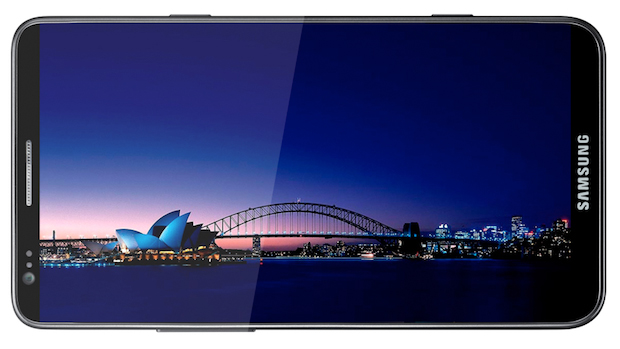- The new Samsung Galaxy S III is basically a full-blown computer masquerading as a phone: Quad-core processor, 1080p HD screen and so on. It's an incredible phone:
http://www.bgr.com/2012/02/27/samsung-galaxy-s-iii-full-specs-1-5ghz-quad-core-1080p-display-ceramic-case/ - The Raspberry Pi went on sale yesterday. It's a credit-card sized computer you can carry around with you and plug into external monitors and keyboards. This video is a great demonstration of what it can do:
- And there are more and more of these little devices popping up all the time. "FXI is preparing to launch the Cotton Candy, a tiny computer that looks like a USB thumb drive. The device, which can run either Ubuntu or Android 4.0, has a dual-core 1.2GHz ARM Cortex-A9 CPU, 1GB of RAM, and a Mali 400MP GPU that allows it to decode high-definition video."
Looking for software that is free for students to install on any computer they have access to? I started this blog because I believe that all students and teachers should be able to use software for learning regardless of their ability to pay software licence fees. Open source software = community-owned software.
Wednesday, February 29, 2012
Three ways to do away with desktop computer
Saturday, February 25, 2012
Online Collaborative Textbooks
Two links about OERs (Online Educational Resources):
It will probably come as no surprise that the magnificent David Wiley is behind in the Utah Open Textbook project, which seeks to get inexpensive, open, online textbooks into the hands of students across the state of Utah. http://utahopentextbooks.org/ A project I'll be watching (and supporting) with interest.
It will probably come as no surprise that the magnificent David Wiley is behind in the Utah Open Textbook project, which seeks to get inexpensive, open, online textbooks into the hands of students across the state of Utah. http://utahopentextbooks.org/ A project I'll be watching (and supporting) with interest.
The second link is to a blog post by Scott Leslie about OER 'book sprints':
A book sprint “brings together a group to produce a book in 3-5 days. There is no pre-production and the group is guided by a facilitator from zero to published book. The books produced are high quality content and are made available immediately at the end of the sprint via print-on-demand services and e-book formats.” The idea of a “sprint” originates in the coding world, where a group of developers work in a concerted way over a short, intense period to produce some new code. Originally they were face-to-face events, often held in conjunction with a conference or some other gathering, but in the last few years I have seen them sprout up as online events, both tightly and loosely coordinated. Similarly, while Book sprints began as face to face efforts, they too are starting to migrate into online-only events.I like the idea of a book sprint a lot, and will see if I can arrange something along these lines for later in the year.
Thursday, February 23, 2012
Crocodile clips blog
I know quite a few people use the software Yenka (which used to be known as Crocodile Clips) for chemistry, electronics, physics etc. They have a useful Tumblr blog that not everyone will know about: http://crocclips.tumblr.com/
Tuesday, February 21, 2012
Do you teach from the bandstand?
Ewan Macintosh asks the right questions:
"Do you have a plan that you stick with, no matter what? Do you have a plan at all? Do you have a plan that you're prepared to give up totally when a student proposes something, anything, interesting? Are you patient, listening to what's going on, allowing yourself to be pulled, and slick enough (skilled enough?) to react and create something magical out of your box to make a lesson sing?"
Monday, February 20, 2012
Android@Home seeks to rival Apple's Airplay
From http://www.androidapps.com/tech/articles/11026-android-home-could-rival-apple-airplay
"One area in which Google has yet to catch up with Apple is home entertainment. That may soon change, as Google is reportedly working on an Android-based home music system called Android@home. Such a system would likely be among the first products to come out of Project Tungsten, which Google demonstrated at their I/O conference last spring. There, Google showed a tablet that could manage various aspects of the home, including turning lights on and off, sending music from the Internet to a hi-fi, and speakers laced with an NFC chip to initiate music play."
Sunday, February 19, 2012
Who really benefits from putting high-tech gadgets in classrooms?
I think technology is one of the most potentially transformative tools in a teacher's arsenal, but it's always good to remember to have your eyes wide open when making decisions that affect our learners. This is a really thought-provoking piece from the L.A. Times. It reminds me of one of Seymour Papert's great lines: "Of course “technology doesn’t work.” Technology doesn’t do anything. People do. "
How much genuine value is there in fancy educational electronics? Listen to what the experts say.
"The media you use make no difference at all to learning," says Richard E. Clark, director of the Center for Cognitive Technology at USC. "Not one dang bit. And the evidence has been around for more than 50 years."
Almost every generation has been subjected in its formative years to some "groundbreaking" pedagogical technology. In the '60s and '70s, "instructional TV was going to revolutionize everything," recalls Thomas C. Reeves, an instructional technology expert at the University of Georgia. "But the notion that a good teacher would be just as effective on videotape is not the case."
Two ways to export your Google Docs
It's always good to be able to take control of your own data, and Google is certianly leading the way on this:
"Google Takeout supports a new service: Google Docs. Now you can use the same interface to batch export your documents." From http://googlesystem.blogspot.co.nz/2012/01/two-ways-to-export-your-google-docs.htmlIt might be that Google's open approach to data has 'encouraged' Facebook to offer users the ability to download their information.
Subscribe to:
Posts (Atom)


